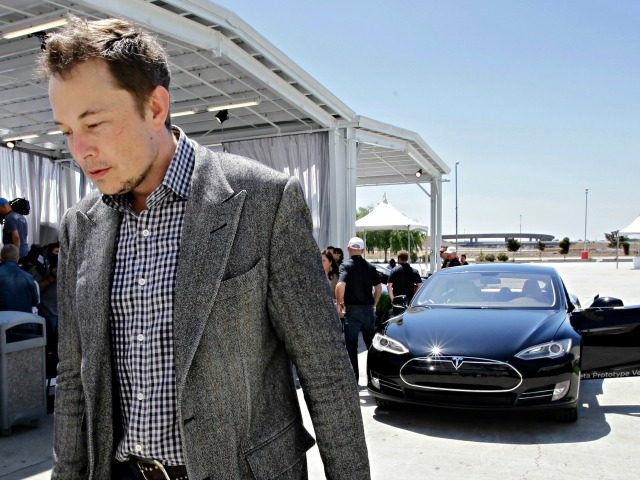Elon Musk faces a shareholder proposal that could take away his Chairman title as conflict of interest concerns and litigation compound Tesla’s lack of profitability challenges.
Tesla, Inc. was founded by Martin Eberhard and Marc Tarpenning in 2003 after General Motors recalled and destroyed all of its pioneering EV1 electric cars. A year later, Musk put up most of the cash in a $7.5 million Series A venture capital funding that made him Chairman. With the founders out by 2008, Musk has been CEO ever since.
But Musk will face a shareholder proposal to split the CEO and Chairman roles at the company’s June annual meeting, filed by Jing Zhao, a holder of just 12 shares of Tesla.
The qualifying proposal to reign in Musk comes just three weeks after a Delaware Chancery Court ruled against a shareholder’s conflict of interest lawsuit challenging the company’s bail-out acquisition of SolarCity for a stunning $2.6 billion can proceed.
USA Today reported that Musk, on the Wall Street analyst conference call after the 2016 Solar City deal was announced, called the acquisition a “zero-doubt” move that “we should have done sooner.”
But Delaware Chancery Court Judge Joseph Slights found that investor plaintiffs had provided sufficient evidence at the early stage of litigation to prove it was “reasonably conceivable” that although Musk was only a minority stakeholder of Tesla, Inc. at the time, he “controlled the Tesla Board in connection with the acquisition.”
Tesla’s attorneys lashed out after the negative decision on the company’s motion to dismiss caused a media firestorm about other alleged conflicts of interest in buying a near bankrupt company controlled by extended family for a wildly inflated cost, “We, of course, contend the allegations in the complaint are false.”
The court ruling means that plaintiffs will get discovery access to all Tesla’s and Solar City’s acquisition documents and inevitably will put Musk and other Tesla insiders and bankers through multi-day depositions under sworn penalty of perjury.
Potential Tesla liability concerns are also mounting regarding the company’s decision to stop cooperating with the U.S. National Transportation Safety Board investigation of a March fatal crash of a Model X SUV in self-driving mode, which caused the regulatory investigation team to boot Tesla’s joint-participation in the crash for selectively disclosing only positive information regarding the investigation.
Tesla announced just a week after the mid-March Model X crash and fiery death of driver Walter Huang, that the driver had turned on the Autopilot mode that self-steers the vehicle, but he had failed to keep his hands on the wheel to respond to a Autopilot steering wheel vibration signal of danger. According to a report by the Wired website blog, the driver took his hands off the wheel for at least six seconds before the crash.
After Tesla responded to the grim development by going public to say it was the company that quit participating, the NTSB Chairman Robert Sumwalt went on Twitter to publicly respond; “This letter is to memorialize a conversation between you…and me on Wednesday, April 11, 2018. In that conversation I informed you that NTSB has revoked Tesla’s party status from the investigation…”
Jing Zhao has said that Tesla needs an independent chairman of the board of directors, which is a standard governance practice for big corporations in the UK and the U.S. The Tesla proxy statement set the 2018 annual meeting for June 5 at the Computer History Museum in Mountain View, California.

COMMENTS
Please let us know if you're having issues with commenting.